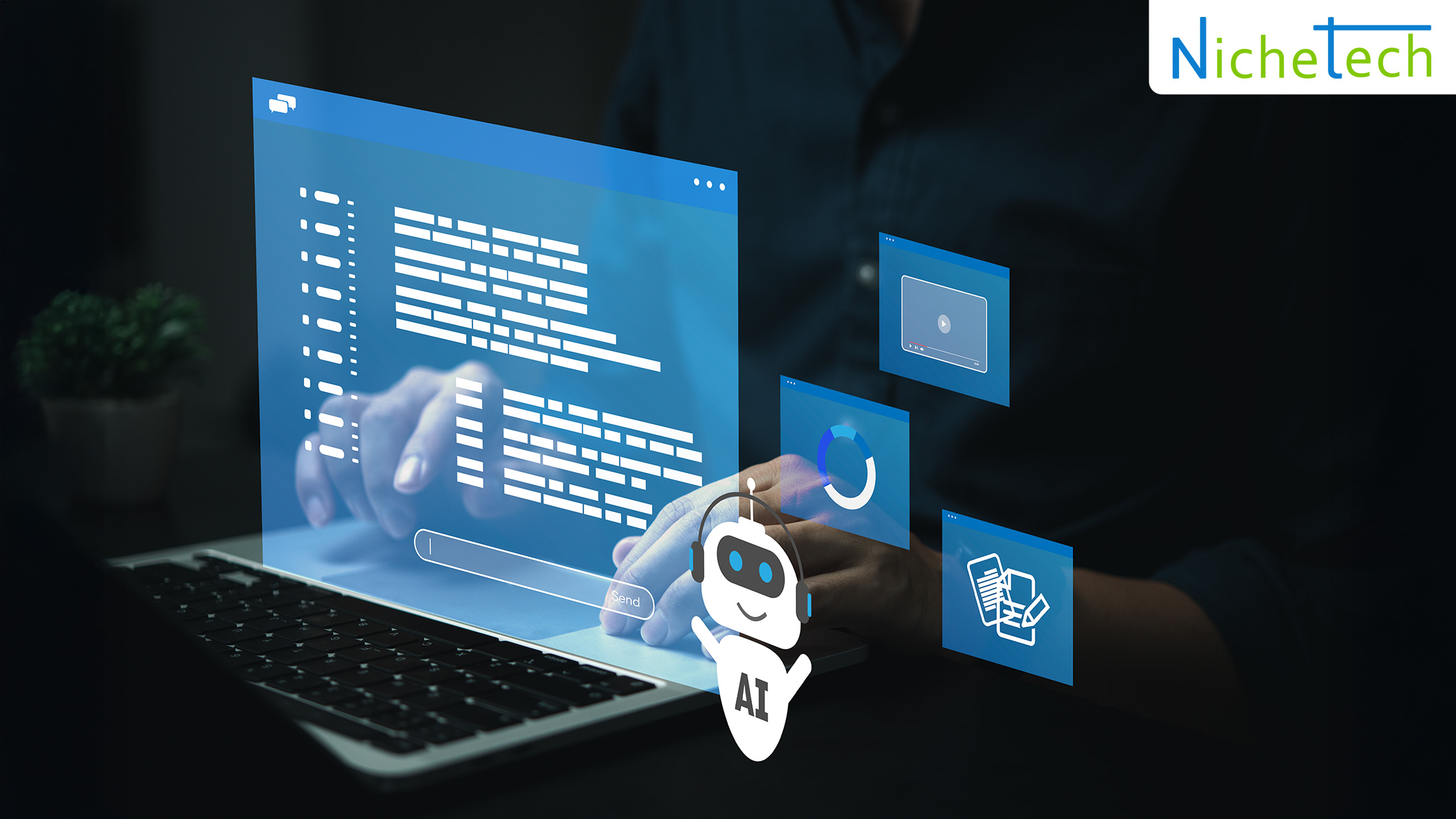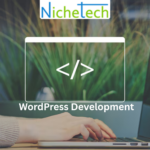The world of web development is evolving at a rapid pace, and one of the most transformative technologies driving this change is Artificial Intelligence (AI). AI is not just a buzzword; it’s becoming an essential tool for developers and businesses alike, reshaping the way websites are built, optimized, and maintained. In this blog, we’ll explore how AI is revolutionizing web development and the exciting ways it’s making website creation more efficient, user-friendly, and innovative.
1. AI-Powered Design: Automating the Creative Process
Traditionally, web design has been a manual and often time-consuming process, with designers having to create everything from scratch. However, AI-powered design tools are now allowing websites to be built faster, with less human intervention. Tools like Wix ADI (Artificial Design Intelligence) and Firedrop can generate beautiful website layouts based on user preferences, using AI algorithms to create designs that align with business goals.
How AI Improves Design:
Faster Development: AI automates the design process, creating custom layouts in minutes rather than days.
Intelligent Layouts: AI understands user behavior and can optimize the layout for the best user experience, suggesting design elements like color schemes and fonts that work well together.
Personalized Experience: AI can adapt design elements based on user interaction data, ensuring the site continuously evolves to suit visitor preferences.
2. AI in Content Creation: Personalized and Dynamic Web Pages
AI is making it easier to generate content for websites, particularly in areas like copywriting, product descriptions, and blogs. Tools like Copy.ai and Jasper leverage AI to automatically generate high-quality content that is relevant, engaging, and SEO-optimized.
AI for Content Personalization:
Dynamic Content Display: AI uses data on user behavior and preferences to personalize content on websites, showing users tailored information, products, or services that are most relevant to them.
SEO Optimization: AI-driven tools can optimize content for search engines by suggesting relevant keywords, improving page rankings.
Content Recommendations: AI can suggest related articles, products, or services, increasing user engagement and conversions.
By incorporating AI into content creation, websites can offer more relevant, engaging, and efficient content without the need for constant manual intervention.
3. Chatbots and Virtual Assistants: Enhancing User Interaction
One of the most impactful uses of AI in web development is in the form of chatbots and virtual assistants. These AI-driven tools are designed to improve customer interaction, answer queries, and provide real-time support to website visitors.
How AI Chatbots Are Transforming User Support:
Instant Response: Chatbots provide instant responses to customer queries, improving user experience by eliminating long waiting times for customer service.
24/7 Availability: AI-powered chatbots are available around the clock, offering continuous support without requiring human intervention.
Learning Capabilities: AI chatbots use machine learning to improve their responses over time, becoming more accurate and effective in handling complex questions.
AI-driven chatbots help websites offer better customer support and boost engagement, ultimately leading to higher customer satisfaction and retention.
4. AI for Website Performance and Optimization
AI is not only transforming the front-end of websites but also plays a crucial role in optimizing their back-end operations. AI tools can automatically test website performance, detect slow-loading elements, and optimize site speed to enhance overall user experience.
AI for Speed and Optimization:
Automated Performance Monitoring: AI tools track website performance in real time, analyzing load speeds and detecting bottlenecks that can cause delays.
Intelligent Caching: AI can predict user behavior and optimize caching strategies, ensuring faster page load times by serving the most relevant content quickly.
SEO Insights: AI can provide actionable insights on how to improve SEO by analyzing page load times, mobile-friendliness, and content structure, helping developers make changes that improve the website’s search engine ranking.
Optimizing a website with AI tools ensures that it runs smoothly, loads quickly, and ranks well in search engines, contributing to a better user experience and improved business performance.
5. AI-Driven User Testing and A/B Testing
Testing is a critical part of web development, but it often requires significant time and effort. AI simplifies the testing process by automating A/B testing and user behavior analysis, providing actionable insights that help developers refine and enhance websites.
How AI Enhances Testing:
Automated A/B Testing: AI can conduct A/B testing more efficiently, automatically testing different variations of a webpage to determine which one performs best.
Behavior Tracking: AI tracks user behavior on a website, such as mouse movements, clicks, and scroll patterns, to identify which elements are most engaging and which ones need improvement.
Predictive Analytics: AI can predict how changes to a website will impact user behavior, helping developers make data-driven decisions before implementing changes.
This reduces the trial-and-error approach to website design, helping developers make better-informed decisions to improve user experience and conversion rates.
6. AI for Enhanced Security: Protecting User Data
As cybersecurity becomes an increasingly important concern for websites, AI is proving to be an invaluable tool in detecting and preventing security breaches. AI-driven security systems can analyze website traffic and behavior to spot potential threats, often before they cause harm.
AI-Driven Security Features:
Real-Time Threat Detection: AI algorithms monitor website traffic in real-time, identifying suspicious activity and blocking potential threats like DDoS attacks and data breaches.
Anomaly Detection: AI can detect anomalies in user behavior or traffic patterns that may indicate a security breach, helping prevent fraud and unauthorized access.
Automated Vulnerability Scanning: AI tools continuously scan websites for vulnerabilities, ensuring that security patches are applied quickly to prevent cyberattacks.
By integrating AI into website security, businesses can better protect user data, build trust with customers, and avoid costly security breaches.
7. Streamlining E-Commerce Development with AI
AI is transforming the way e-commerce websites are built and managed. From product recommendations to personalized shopping experiences, AI enhances the entire customer journey, leading to increased sales and customer loyalty.
AI Features for E-Commerce:
Personalized Recommendations: AI analyzes customer preferences and browsing behavior to suggest products they are likely to purchase, improving conversion rates.
Automated Inventory Management: AI tools can predict demand and automate inventory management, ensuring that products are always available when customers need them.
Chatbots for Customer Support: AI-powered chatbots can handle customer inquiries about products, shipping, and returns, providing immediate assistance without human intervention.
For e-commerce businesses, AI offers the potential to improve sales, streamline operations, and enhance the customer shopping experience.
Conclusion: The Future of Web Development Is AI-Driven
As we move into 2025 and beyond, AI will continue to shape the future of web development, making it faster, smarter, and more efficient. From design and content creation to testing, security, and e-commerce, AI offers innovative solutions that improve user experience, enhance performance, and drive business growth.







